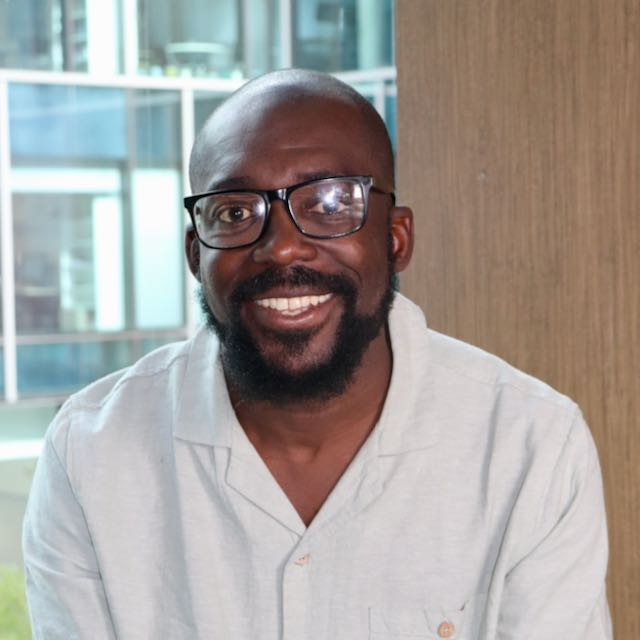Categories
-
ANU Africa Network
Posted on
by
This website was established in 2013 by David Lucas, and renovated and relaunched in 2020 as part of a project to increase awareness of Africa and African studies in the ANU and the ACT, funded by the Australian Government’s Department of Foreign Affairs and Trade.
Another outcome of that project was a major research report, published in August 2021, African Studies at the Australian National University and in the Australian Capital Territory, analyzing the past, present and future of the study of Africa at the Australian National University and the wider Australian University sector.

The major innovation on this updated website is the creation of the ACT Africa Expert Directory which lists experts on Africa from institutions around the ACT, primarily the ANU. We will continue to curate this list, offering a key resource for media, government and non-government organizations seeking expert facts and opinions on Africa. Individuals can request to be added to the list by contacting the website managers.
Another notable addition is the expanded directory of PhD theses on Africa produced in the territory’s universities, a solid measure of the vitality of the study of Africa in the city of Canberra.
Reviewing these directories, it is revealing to note that the vast majority of research on Africa is produced by disciplinary experts (environmental scientists, economists, demographers, etc.) rather than area studies experts. This means that the study of Africa is woven into the fabric of the research culture of the ANU and the ACT’s other universities in ways that are not necessarily apparent.
-
Happy National Day, Ethiopia!
Posted on
by
Today is the National Day of Ethiopia or the Downfall of the Derg Day. The day is celebrated every year on May 28th.
In 1974, a military junta called the Derg deposed the ruling government and established a socialist state. The Derg regime faced internal conflicts, uprisings, drought, and mass displacement. It was eventually overthrown in 1991 by a coalition of opposing forces known as the Ethiopian People’s Revolutionary Democratic Front (EPRDF). The EPRDF governed Ethiopia as an ethno-federalist political coalition from 1991 until it was dissolved in 2019.
-
Research and Publication Workshop
Posted on
by
Would you like to improve your research and publication skills?
Then join us on May 31st for a two-hour session where you will learn how to get your paper published with ease.
The session will be conducted by two exceptional faculty members from ANU.1Dr. Safiya Okai-UgbajeLecturer, ANU ANU School of Cybernetics

Dr. Safiya Okai-Ugbaje, is one of the two facilitators of the network’s upcoming Research and publication workshop.
Safiya Okai-Ugbaje is a researcher and lecturer at the ANU School of Cybernetics. She completed her PhD at the University of Notre Dame Australia, focusing on innovative solutions in the educational technology domain. Safiya holds a Bachelor of Technology in Mathematics and Computer Science from the Federal University of Technology Minna, Nigeria, and a Master of Science in IT Management with Distinction from Staffordshire University, UK.
Safiya has worked on a variety of projects in the areas of cloud computing and green ICT, educational technologies, and cyber safety for Australia’s Indigenous children. She is highly passionate about conducting research that moves beyond theory into practical applications that provide sustainable solutions to contextual problems. During her PhD, Safiya worked with various stakeholder groups, including senior management and academics, to facilitate the delivery of innovative and suitable educational solutions in higher education. The project succeeded in demonstrating how local opportunities may be effectively utilised to facilitate technology-enhanced teaching and learning even where resources are limited.2Dr. Bernard BaffourAssoc. Prof., ANUCollege of Arts and Social Sciences

Next on our facilitators’ list for the upcoming workshop is Associate Professor Bernard Baffour.
Bernard Baffour is an Associate Professor in the School of Demography and the Associate Dean of Inclusivity, Diversity, Equity, and Access (IDEA) at the College of Arts and Social Sciences at The Australian National University.
Bernard completed his PhD in social statistics from the University of Southampton in the United Kingdom, where he investigated the statistical properties of triple system capture-recapture estimators in population censuses, and subsequently undertook a post-doctoral fellowship examining the relationship between weather and health by quantifying the impact drops in temperature had on hospital admissions.
Prior to joining the School of Demography at the ANU in 2017, he was a research fellow in social statistics at the Institute for Social Science Research at the University of Queensland from 2012, where he contributed to consultancy projects and provided methodological support to a wide range of social scientists while developing a research focus in survey research and official statistics.
Bernard has methodological expertise in survey methods and the analysis of complex data. He has a diverse range of experience working across a wide spectrum of areas, including education, sociology, epidemiology, public health, and operational research.If you’re interested in attending the workshop, please sign up through the link below this post. This event is open to the public and will have a virtual option for those who cannot make it physically to Room 2.56 at the ANU College of Arts & Social Sciences.
If you are coming physically, you might find the attached map useful. Please do not hesitate to contact us if you have any questions or concerns.
-
Celebrating 33 years of Eritrean independence!
Posted on
by
Today, we proudly commemorate the 33rd anniversary of Eritrea’s independence. We extend our heartfelt wishes to all the courageous Eritreans celebrating this significant day.
Eritrea’s journey to independence began with the end of Italian colonial rule in 1941. Following a decade of British administration, the United Nations established Eritrea as an autonomous region within the Ethiopian federation in 1952. However, Ethiopia’s full annexation of Eritrea as a province in 1962 ignited a protracted and violent 30-year struggle for independence. This conflict culminated in 1991 when Eritrean fighters triumphed over Ethiopian government forces, leading to an overwhelming approval of independence in a 1993 referendum. Since then, Isaias Afwerki has been Eritrea’s sole president.
The relationship between Eritrea and Ethiopia further deteriorated after a severe border war from 1998 to 2000. However, a turning point occurred when the newly elected Ethiopian Prime Minister signed declarations of peace and friendship, leading to a renewed phase of diplomacy. Eritrean leaders actively engaged in fostering regional peace, security, and cooperation, as well as mediating rapprochements between governments and opposition groups in the Horn of Africa.
In 2018, the United Nations Security Council lifted the arms embargo imposed on Eritrea in 2009. Despite this, Eritrea faced renewed international condemnation and US sanctions in mid-2021 due to its involvement in the conflict in Ethiopia’s Tigray region, where Eritrean forces were implicated in war crimes and crimes against humanity.
Economically, Eritrea remains heavily dependent on agriculture and continues to be one of Africa’s poorest nations. Nonetheless, the spirit and resilience of the Eritrean people remain a testament to their enduring quest for peace and prosperity.
Happy Independence Day, Eritrea!
